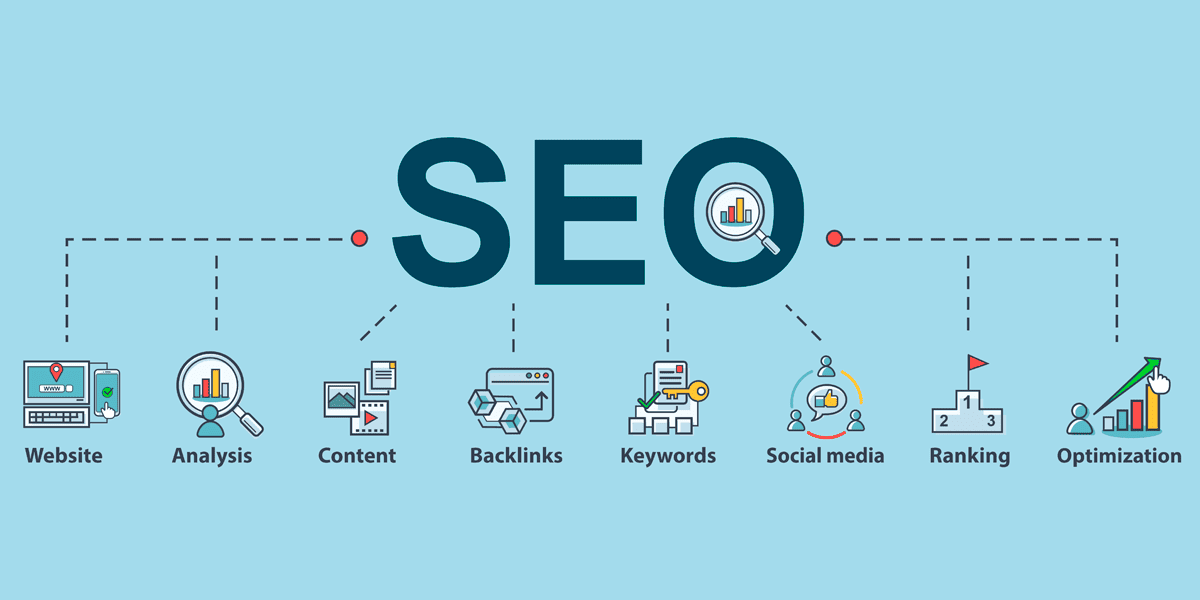· 4 min read
How to Conduct an SEO Audit: A Step-by-Step Guide
Improve your website's search performance with this comprehensive guide to conducting an SEO audit. Learn how to identify and fix technical issues, optimize on-page elements, improve content, and boost your off-page SEO

Is your website underperforming in search results? An SEO audit can reveal the technical issues, content gaps, and off-page weaknesses holding you back. In this post, we’ll walk you through a comprehensive, step-by-step guide to conducting an SEO audit that can boost your rankings and drive more organic traffic to your website. Whether you’re located in Vancouver, Toronto, Halifax, somewhere in between, or outside of Canada, this guide will provide you with the insights you need to improve your website’s visibility.
Step 1: Prepare Your Tools
Before you begin your audit, gather the essential tools. These will provide the data and insights you need to identify issues and opportunities.
- Google Analytics: For understanding website traffic, user behavior, and conversion paths.
- Google Search Console: Crucial for identifying crawl errors, indexing issues, search queries, and sitemap status.
- SEO Auditing Tool (e.g., SEMrush, Ahrefs, Screaming Frog): These tools help you perform technical crawls, analyze backlinks, and identify on-page issues at scale.
Step 2: Technical SEO Audit - The Foundation
Your website’s technical health is paramount for search engine visibility. Even the best content won’t rank if search engines can’t properly access and understand your site.
- Crawlability & Indexability:
- Check your
robots.txtfile to ensure it’s not blocking important pages. - Verify your XML sitemap is submitted to Google Search Console and is up-to-date.
- Look for and fix any crawl errors reported in Google Search Console.
- Check your
- Site Speed:
- Use Google PageSpeed Insights or GTmetrix to analyze loading times on both desktop and mobile.
- Identify and address large image files, unoptimized code (CSS, JavaScript), and server response times.
- Mobile-Friendliness:
- Use Google’s Mobile-Friendly Test to ensure your site is responsive and easy to use on all devices.
- Check for touch element spacing, viewport configuration, and readable font sizes.
- HTTPS:
- Confirm your website uses HTTPS for secure connections. This is a ranking factor and crucial for user trust.
- Structured Data (Schema Markup):
- Use Google’s Rich Results Test to validate existing schema markup.
- Identify opportunities to add schema (e.g., for products, reviews, FAQs, local business information) to enhance search visibility.
Step 3: On-Page SEO Audit - Optimizing Content
This step focuses on optimizing individual pages to rank higher for target keywords and provide a better user experience.
- Keyword Usage & Intent:
- Ensure your target keywords are naturally integrated into your content, especially in headings and the first paragraph.
- Verify that the content aligns with the user’s search intent (informational, transactional, navigational).
- Title Tags & Meta Descriptions:
- Check that each page has a unique, compelling title tag (under 60 characters) and meta description (under 155 characters) that includes relevant keywords.
- Header Tags (H1-H6):
- Confirm logical content structure using header tags. Each page should have one H1 tag, and subheadings should follow a hierarchical order.
- URL Structure:
- Ensure URLs are short, descriptive, and include relevant keywords where appropriate.
- Image Optimization:
- Verify all images have descriptive
alttext that includes keywords when relevant. - Check image file sizes and dimensions for optimal loading.
- Verify all images have descriptive
- Internal Linking:
- Review internal links to ensure relevant pages are connected, distributing link equity and improving user navigation.
Step 4: Content Audit - Quality and Gaps
Beyond individual page optimization, a content audit assesses the overall quality and completeness of your website’s content.
- Content Quality & Relevance:
- Evaluate if your content is accurate, well-researched, engaging, and provides value to your target audience.
- Identify outdated content that needs updating or removal.
- Content Gaps:
- Analyze competitor content and keyword research to identify topics you haven’t covered but should.
- Look for opportunities to create more in-depth or unique content that addresses user needs.
- User Engagement Metrics:
- Use Google Analytics to review bounce rate, time on page, and pages per session. High bounce rates or low time on page can indicate content issues.
Step 5: Off-Page SEO Audit - Building Authority
Off-page SEO focuses on external signals that build your website’s authority and trustworthiness.
- Backlink Profile Analysis:
- Use tools like Ahrefs or SEMrush to analyze your backlink profile.
- Identify high-quality, relevant backlinks and disavow any toxic or spammy links.
- Local SEO (for local businesses):
- Ensure your Google Business Profile is fully optimized, accurate, and consistent across all online directories.
- Monitor and respond to online reviews.
- Social Signals:
- While not a direct ranking factor, a strong social media presence can drive traffic and increase brand visibility, indirectly benefiting SEO.
Conclusion: Your Roadmap to SEO Success
Conducting a thorough SEO audit is not a one-time task but an ongoing process. It provides a clear roadmap for improving your website’s search performance, attracting more organic traffic, and ultimately, driving business growth. By systematically addressing the issues identified in your audit, you can build a stronger, more visible online presence.
Need expert assistance with your SEO audit or implementing its recommendations? Contact Y5 Web Studio for a comprehensive analysis and tailored strategy to boost your online visibility.




